Important milestone in the CO₂ storage project
The Ministry of Energy has received and started our assessment of the development plan for the Northern Lights CO2-storage project.
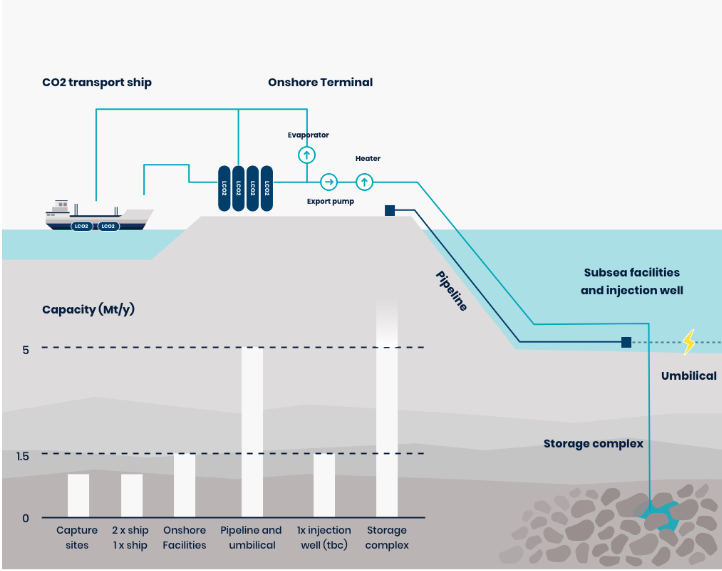
A necessary step
– Carbon capture and storage (CCS) is important for achieving the goals of the Paris Agreement. The submission of the development plan is a necessary step in order to realize full-scale CO2-capture and storage in Norway. The Northern Lights project will also be able to offer CO2 storage from other countries. Northern Lights is an example of the expertise and experience we have built up in the oil and gas industry being used in the development of new technology and new solutions that ensure sustainable use of energy. Hywind Tampen, which was just approved by the authorities, is another such example, says Minister Tina Bru.
Read the full press release from the Norwegian Ministry of Petroelum and Energy here
Will have room for CO2 from all across Europe
– The Norwegian CCS project is in many ways a European project, since the planned storage facility in the North Sea will have room for CO2 from all across Europe. An important milestone for the Norwegian full-scale project has now been passed since the Northern Lights consortium has submitted their development plan to the authorities, says Gassnova’s CEO Trude Sundset.
For more information about the Norwegian Fullscale CCS Project: ccsnorway.com
For more information about the Northern Lights part of the project: northernlightsccs.com/
Continuing the operation of Technology Centre Mongstad
The Government propose a continuation of the financial support for the Technology Centre for CO2 capture at Mongstad (TCM) until end of 2023
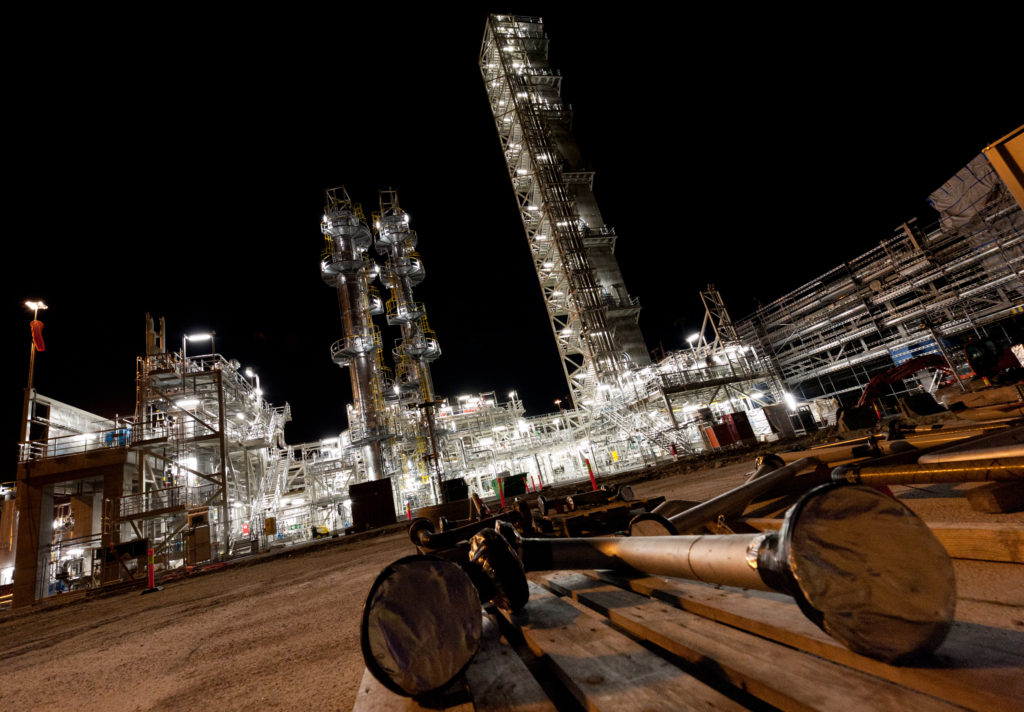
Agreed to continue the operation of TCM
The state and the industrial companies have now agreed to continue the operation of TCM from the expiration date of the current agreement until the end of 2023.
– Collaboration is key to ensuring the development and deployment of effective capture technologies in the future. We are very pleased that both the Norwegian government and our industrial owners have renewed their commitment to TCM operations. Now we will continue our efforts to making carbon capture as efficient as possible to combat climate change, says Gassnova’s chairman of TCM, Roy Vardheim.
Read the press release from the Norwegian Ministry of Energy here.
TCM tests technology for climate fund
Technology Center Mongstad (TCM) has signed a contract with OGCI Climate Investments – the $1B+ investment fund of the Oil and Gas Climate Initiative (OGCI) – to test carbon capture technology at TCM’s facilities in Norway in March 2020
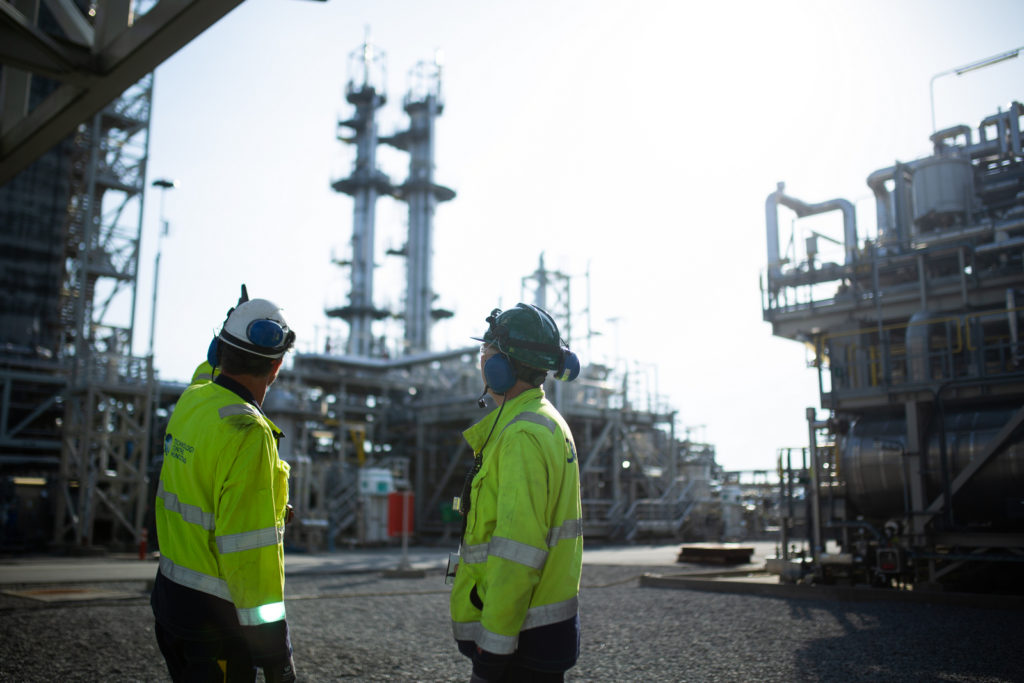
Advisory services to OGCI
TCM has provided advisory services to OGCI Climate Investments on the assessment of carbon dioxide (CO2) capture technologies since 2019.
TCM is the world’s largest center for verification of CO2 capture technologies, a critical component for the removal of CO2 from large industrial emission sources. TCM’s real life experience is valuable for developers of large CO2 capture and storage (CCS) projects.
On 28th February, OGCI Climate Investments announced the formation of a consortium of OGCI members – BP, Eni, Equinor, Shell and Total, with BP as operator – to develop the Net Zero Teesside project to deliver the UK’s first zero carbon cluster. From the mid-2020s, the project plans to capture up to 6 million tonnes of carbon dioxide emissions each year, equivalent to the annual energy use of up to 2 million homes in the UK.
The CO2 capture test being conducted by TCM this month will be an important step to enabling the project to achieve these goals.
– We are honored to work together with OGCI Climate Investments, on CO2 advisory services and now also technology testing. The Net Zero Teesside project is one of Europe’s leading CCS-ventures and our long-standing expertise on carbon capture is well suited for this project, says managing director Ernst Petter Axelsen of TCM.
– CCUS technology is critical to meeting the goals of the Paris Agreement. In order to continue making CCUS projects economic, we need facilities like TCM to test new technologies, says Pratima Rangarajan, CEO of OGCI Climate Investments.
– We’re looking forward to extending our collaboration with TCM to further develop our practical knowledge of dispatchable capture plant operation through this test programme, adds Colin McGill, Project Director of Net Zero Teesside.
About TCM
Technology Centre Mongstad (TCM) is the world’s largest and most flexible test facility for development of CO2 capture technologies and a leading competence centre for carbon capture. The company is located at one of Norway’s most complex industrial facilities, Mongstad on the west coast of Norway. TCM is owned by the Norwegian State, through Gassnova (77.5%), together with the industrial partners and OGCI members; Equinor (7.5 %), Shell (7.5%) and Total (7.5%). Read more about TCM
About OGCI Climate Investments
OGCI Climate Investments is a $1B+ fund that invests in solutions to decarbonize sectors like oil and gas, industrials and commercial transport. We look for outcomes that reduce methane and carbon dioxide emissions, and that can recycle or store carbon dioxide. Achieving significant impact requires global implementation and commercial frameworks – at OGCI Climate Investments, we collaborate with innovators, investors and governments to fund and implement impactful solutions.
Northern Lights well completed
Equinor and partners Shell and Total have completed the drilling of confirmation well 31/5-7 Eos south of the Troll field in the North Sea. The purpose was to determine the suitability of the reservoir in the Johansen formation for CO2 storage.
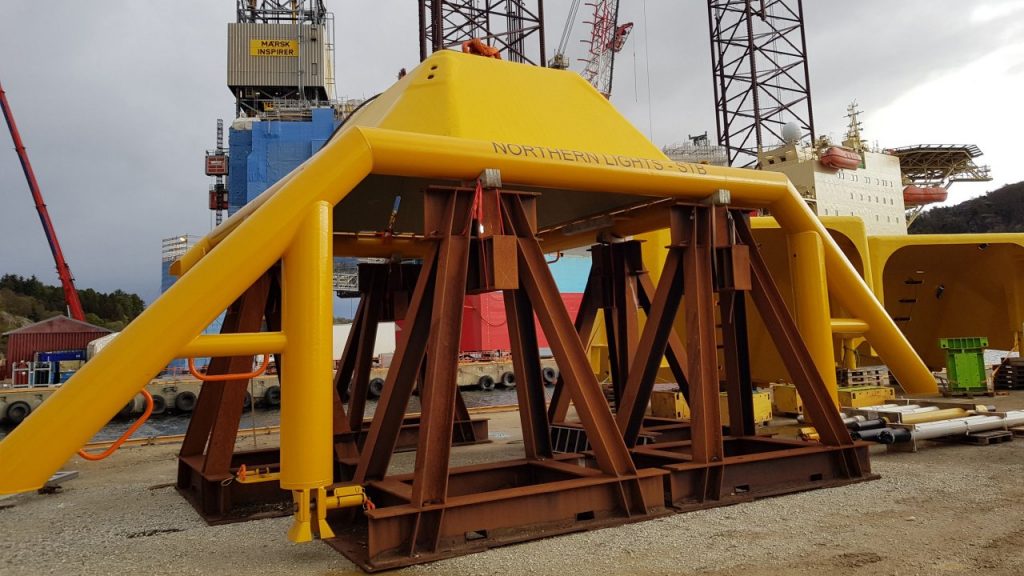
Completed the drilling
Equinor and partners Shell and Total have completed the drilling of confirmation well 31/5-7 Eos south of the Troll field in the North Sea. The purpose was to determine the suitability of the reservoir in the Johansen formation for CO2 storage.
“This is an important milestone in realising the possibility of a CO2 storage on the Norwegian continental shelf,” says Geir Tungesvik, Equinor’s senior vice president for project development.
Read the press release from Equinor here.
Top US Energy Official visited TCM
Steven Winberg from US Department of Energy (DOE), and his Norwegian colleague State Sec. Odd Emil Ingebrigtsen visited Technology Centre Mongstad (TCM) on Friday 14.
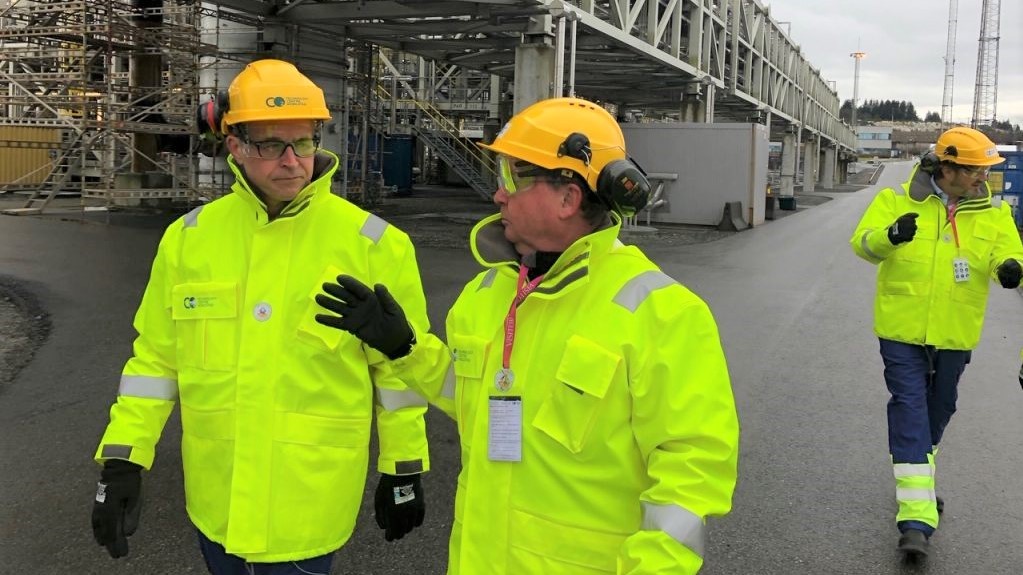
USA and Norway have a long and storied partnership
– The International Energy Agency has stated carbon capture is an essential piece of any effort to reduce carbon emission significantly and the energy transition. USA and Norway have a long and storied partnership that will only continue to grow, said Winberg who visited TCM to learn about the new unit for testing emerging carbon capture technologies.
The US Department of Energy (US DOE) has long partnered with US companies to test their technologies at TCM in Norway. Since 2018, DOE has funded six US companies for testing at TCM. ION Clean Energy and Fluor Corporation have already successfully completed their testing. In addition, Membrane Technology & Research (MTR) and TDA Research have signed agreements to conduct testing at the new site for emerging technologies at TCM in 2020.
TCM has a unique scale and flexibility in terms of ability to simulate real-world conditions
TCM is currently the world’s largest and most advanced plant for testing of carbon capture technologies. The technology centre has invested more than USD 3 million in a new test site that will allow testing of new emerging carbon capture technologies such as membranes or absorbents (solid materials binding with CO2). The expansion will be completed in 2020.
The test centre at Mongstad currently consist of two industrial scale facilities with liquid based technologies. The two main technology suppliers for the planned full-scale carbon capture projects in Norway, Heidelberg Materials Brevik and Fortum Oslo Varme, have tested and developed their technologies at TCM.
– TCM has a unique scale and flexibility in terms of ability to simulate real-world conditions for post-combustion capture and to test a multitude of different mature and emerging technologies in a cost-effective manner, so that they are ready for international deployment,” said State Secretary of the Norwegian Ministry of Energy, Odd Emil Ingebrigtsen, who accompanied his US colleague during the TCM visit.
In 2004, the governments of Norway and the United States signed a bilateral cooperation agreement in the energy sector, which included carbon capture. The US Department of Energy has been working very closely with TCM since the plant started in 2012.
